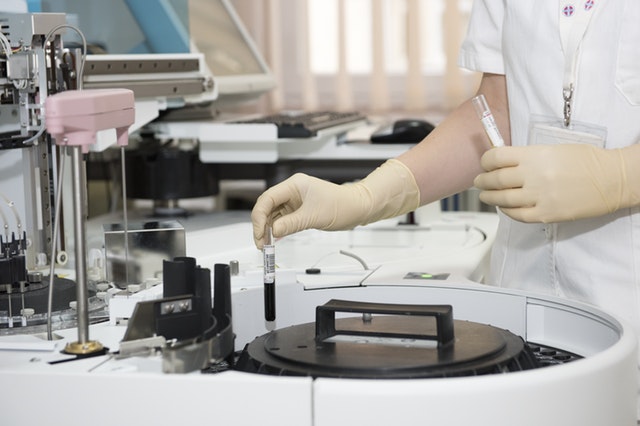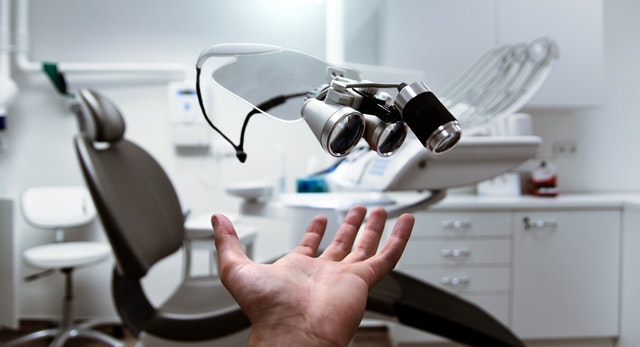The integration of the latest technology with different sectors of industries is changing how the world functions. Speaking primarily of the Healthcare industry, it has improved incredibly in the last decade, as advancements in technology sped up.
The result of this expeditious growth in technology and its amalgamation with healthcare is improved and developed medical and healthcare facilities. The healthcare industry has undergone major changes, which were rather necessary and awaited.
It is due to this technological transformation of this industry that patients, doctors, and medical staff alike are getting more effective services.
Now, there are certain trends that emerged with this amalgamation such as Healthcare app development. Let’s discuss other trends of technology which are making this industry better than ever.
1. Artificial Intelligence
AI is a hot topic in all of the industries. It is said to be the technology of our present and our past. Artificial Intelligence algorithms are effective when it comes to miming medical records, drug creation, designing treatment plans and even drug creation that is way more expeditious than the manual process.
This technology is also capable of discovering possible cures for a disease like Ebola virus from existing drugs. All this is achieved with the help of supercomputers, which are imbibed with AI technology. After witnessing the AI trends for 2019, we can expect more miraculous inventions from this technology.
2. Wearables technology
The healthcare industry doesn’t just mean hospitals but also includes the personal health of an individual. It is these wearable devices that took personal healthcare and fitness to another level. Now, users can count steps, check calories burned during workout sessions, measure heart rate and a lot more, and all this with the help of a device that looks like a watch.
Health trackers and sensors are also a part of this big change. They help you in managing weight, stress level, and overall fitness in general.
3. Virtual Reality
Virtual Reality with healthcare is a queer combination but is very useful. With the help of this technology, now medical students can see what surgeries look like which will be extremely similar to life-like experience. One of the accurate examples is “we are Alfred”, which allows the practitioner and young doctors to experience what aging means up close. This helps in bridging the gap between the two generations, making doctors more informed and effective.

4. Augmented Reality
Augmented reality differs slightly from the VR, but has a strong impact on the healthcare industry. It helps doctors and medical students prepare for real-life complicated surgeries and operations. This enhances the capability and efficacy of surgeons.
Now, 3D reconstructions of tumors are possible, making the treatment process more accurate and effective. Complex image reconstruction technology also provides x-ray views with emitting any radiation. Patients are also benefited with this technology as doctors can more effectively describe their symptoms and can give more innovative drug information to them.
5. New Genome Sequencing
So far we have heard of DNA sequencing but in the coming years, as the technology expands Genome sequencing might really pick up the pace. This would mean that with the advanced technology, you would be able to order your genome for lesser prices that you now pay for a normal blood test.
Moreover, you will be able to know about your drug sensitivity along with multifactorial and monogenic conditions. In fact, you would be able to see your family history, and all this is just a few years away from us.
6. Introduction of Robotics
Robotics is one of the most popular and fastest-growing fields of healthcare. There are different kinds of robots, such as surgical robots, disinfectant robots, and exoskeletons now to perform several functions. Robotics has provided an opportunity for paralyzed and handicapped people to walk and perform other functions. When integrated with AI, these robots can also pick up on neural commands and work just as fine as your real organs.
It is also a boon for people with stroke, spinal cord injuries and also problems that come with old age. Not just physically, but robotics also helps patients psychologically. Certain robots are designed to be companions and social partners to combat loneliness and treat mental health problems.
7. Drug Development
The process of drug development is a tediously long and expensive process. Even with the expertise of scientists, it can take a lot of time before scientists are absolutely sure about a drug and its functions. This is where AI is needed. With the help of supercomputers, the same tediously long process can be completed within minutes with more assurance. One of the most revolutionized concepts is Silico trials, which are individualized computer simulations used in the development of a medical product.
The picture we have painted in pretty convincing for sure and clearly make the point of how these technologies are transforming the healthcare sector for the better.

